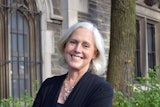Despite Powerful Black Alumni, Tennessee HBCU Faces Financial Trouble
MEMPHIS, Tenn.
Willie Herenton didn’t have much choice in 1958 when he was deciding where to go to college.
The region’s main public university, Memphis State University, refused to admit Black students, so the man who would later be Memphis’ first Black mayor chose the only local school open to him — LeMoyne-Owen College.
“I could not have gone to school if not for LeMoyne,” Herenton says.
The college has played a unique role in Memphis’ history and has graduated an illustrious list of alumni, but that may not be enough to keep it in business. Like other historically Black schools in the Southeast, LeMoyne-Owen is struggling with a mountain of debt and fighting to keep its accreditation.
The school traces its beginnings to the 1860s and efforts to educate former slaves. It was a primary source of Black teachers when public schools were racially segregated. The college’s graduates helped build a Black middle class in what’s now a predominantly Black city, and they took part in the political power shift that put Herenton in office in 1991.
But the small school has a difficult time these days attracting ambitious Black students, who have more options than Herenton did.
LeMoyne-Owen, which has had more than 1,200 students, now has just over 800. Officials are in the middle of a recruiting effort to raise that number to 1,000 — the level it needs to meet expenses.
“Black colleges, particularly smaller, private institutions, though they’re doing valuable work and graduating lots of students, are struggling in a very competitive climate,” says Lynn Walker Huntley, president of the Southern Education Foundation. “And many schools don’t have the money they need.”
While historically Black schools make up 3 percent of U.S. institutions of higher learning, they graduate almost 25 percent of the Black students earning undergraduate degrees, according to the United Negro College Fund.
LeMoyne-Owen’s most urgent problem is $6 million in debts, taken out over the years to meet financial shortfalls. The debt prompted the Southern Association of Colleges and Schools to place the school on probation for accreditation in December.
To turn its finances around, the college has launched a fundraising campaign directed primarily at alumni, churches and businesses.
Focusing on alumni is a good idea and a tactic too often overlooked by small, private schools like LeMoyne-Owen, says John Donohue, the United Negro College Fund’s vice president.
When corporations and foundations are solicited for donations, they often ask, “Well, what are your alumni doing?” he says. “Why should I invest in you if your alumni aren’t?”
UNCF is creating a grant program to help historically Black schools become more successful at lobbying alumni. Benjamin Hooks, who went to LeMoyne-Owen before becoming a judge and later the executive director of the NAACP, agrees with that approach.
“You have to realize this is the first generation of Blacks that had money they could leave in a will or give,” he says.
Hooks enrolled at LeMoyne-Owen in 1941, when Tennessee had one public college for Black students, halfway across the state in Nashville.
“Memphis had twice or three times as many Black people as Nashville did,” Hooks says, “but where the majority of Black folks lived, they didn’t have a college.”
LeMoyne-Owen tracks its history to a school for freed slaves set up in 1862 by the American Missionary Association, a New England abolitionist group that helped free the survivors of the Amistad slave ship.
The school moved to Memphis in 1863 and was the forerunner of the LeMoyne Normal and Commercial School, created in 1871 by the missionary association with a $20,000 donation from Francis J. LeMoyne, a Pennsylvania physician.
The school became a four-year college in 1934 and merged in 1968 with Owen Junior College, which was created by Tennessee Baptists in 1954.
Small, Black colleges offer a “family-type atmosphere” for minority students who worry about getting lost in the crowd at large, predominantly White schools, says LeMoyne-Owen President James Wingate.
“We have a tendency to nurture,” he says. “You can see them grow semester to semester, building their confidence.”
For Huntley, of the Southern Education Foundation, schools like LeMoyne-Owen still play an important role in making sure students succeed.
“If these institutions did not exist,” she says, “we would be trying to create them.”
— Associated Press
© Copyright 2005 by DiverseEducation.com
















